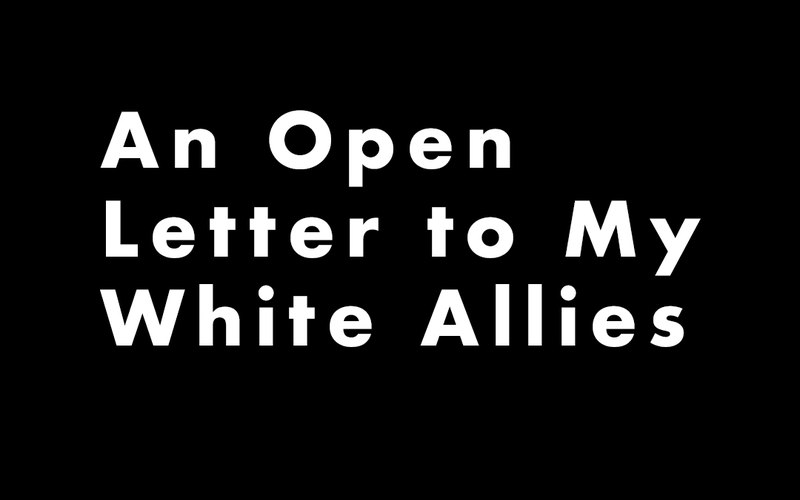
For the past forty minutes, I’ve been staring at a blinking cursor through tears.
Over the past few weeks, we have been mourning and protesting the brutal and unforgivable murders of Ahmaud Arbery, Breonna Taylor, Tony McDade, George Floyd, as well as the thousands of African American people who have died at the hands of racist violence over the past ten years alone. All except Arbery at the hands of police; Arbery himself the victim of a hate crime. He was only 25 years old, just going for a jog in his neighborhood. Taylor was shot (at least) eight times while sleeping in her bed. Floyd was arrested outside of a grocery store. Police say McDade was armed, but I’ve learned through both terrifying news stories and firsthand experience not to take police at their word when it comes to “probable cause” to do what they do to Black people.
Peaceful protests and not-so-peaceful uprisings have been going on for days across America, many instances of the former turning into the latter due to police provocation in the form of tear gas and rubber bullets. Three or four weeks ago, I saw White people fully armed on the steps of capitol buildings protesting a very reasonable legislative response to a global pandemic. Weeks later, I threw down my phone in disgust as white person after white person replayed the footage of Floyd begging for his life and ultimately dying on camera with a cop’s knee on his neck. No content warning, no regard for any Black friend or acquaintance who might be traumatized by seeing this footage even once, let alone over and over and over again.
Both of these instances made me think about the notion of White privilege.
While I commend the efforts of White people finally standing with us against racist violence and finally having honest conversations about White privilege, I’ve been wondering a great deal about White people’s obsession with Black suffering. Spending the past decade as a music journalist -- a White-dominated field across all of music’s genres -- nothing I have ever written has gotten quite as much attention as the things I write about the marginalization, hatred, and killing of my people.
Why is that? Why are so many White people only willing to give a Black writer a spotlight when they write about a Black person’s blood? Blood passed down from generations of what should have been unlawful abuse, from slavery along to Jim Crow along to White police officers’ only punishment for killing us being a demotion or a new job as a private investigator for a law firm? Why is it that Black lives only matter to so many White people after we’re violently shuffled out of our mortal bodies?
These past few weeks, these past few days especially, have been inspiring in the way of liberal White people actually standing up for African Americans as human beings rather than engaging in soft, unspoken segregation and polite tolerance. I don’t know how long these protests will go on, but the real work will come after the last pair of feet march off the street. The most educated of us Black people -- whether formally or otherwise -- have at the very least a reasonable knowledge of White culture. Personally, as a self-educated community college dropout who has written hundreds of thousands of words about many facets of pop culture, I’d like to think I have a pretty extensive knowledge of White canonical works in music, literature, film, and television.
I would generously estimate only about 10% of even my most well-read White friends and acquaintances have ever picked up a Toni Morrison, James Baldwin, or Ralph Ellison book.
Which brings me to the point of this open letter: Being fed up with the grave injustices African Americans go through in a country we’ve had a big hand in building is only half of the work. In order to truly embody the spirit of the Black Lives Matter movement, you must celebrate Black people and Black culture while we are alive to see it. Educate yourself on our cultural history, because I can guarantee you unless you took an African American Studies class in college, the history you learned is distorted. If you pay closer attention to music, you’re likely to see the roots of much of the music you enjoy sprang from the seeds planted by a Black person. Study our art. Learn the origins of our societal contributions. Don’t just stand up for us while we’re lying dead in the street; realize what we’ve brought and continue to bring to American culture.
Thank your Black friends, friends of friends, acquaintances, coworkers, and strangers who add to your quality of life. Thank us for being the backbone of America, sturdy and steadfast while racist forces at every level have tried to crush us for hundreds of years.
Sincerely,
Martin Douglas
Associate Digital Content Producer, KEXP.org